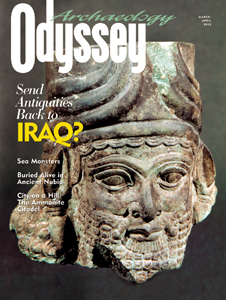The Forum
What’s on readers’ minds? Sacrifice—from ancient Israelites to Nubian kings.
Jephthah’s Daughter

In “Rabbath of the Ammonites,” AO 05:02, Timothy Harrison suggests that the Israelite commander Jephthah committed the “unthinkable act” of killing his daughter and offering her as a human sacrifice (Judges 11:30–40).
This is unlikely. The Hebrew phrase in Judges 11:31 translated as “burnt offering” has also been rendered—in the New English Bible, for instance—as “whole offering,” which may suggest something quite different. Judges 11:40 tells us that, as a consequence of Jephthah’s vow, the daughters of Israel would “lament” (tanot) Jephthah’s daughter for four days out of every year. The meaning of tanot, however, is unclear in this instance. Although the King James Version renders the word as “lament,” it also includes a marginal gloss noting that the word might mean “talk with.” Tanot can also mean “recount,” “commend” and—according to the third, revised edition of the 19th-century scholar Benjamin Davies’s A Hebrew and Chaldee Lexicon (1957)—“repeat.” Jephthah’s daughter, then, was probably not killed but remanded to a temple, where she served the rest of her life without marrying. This is why she and her companions wept over her virginity rather than over her impending death (Judges 11:38).
Already a library member? Log in here.
Institution user? Log in with your IP address.

